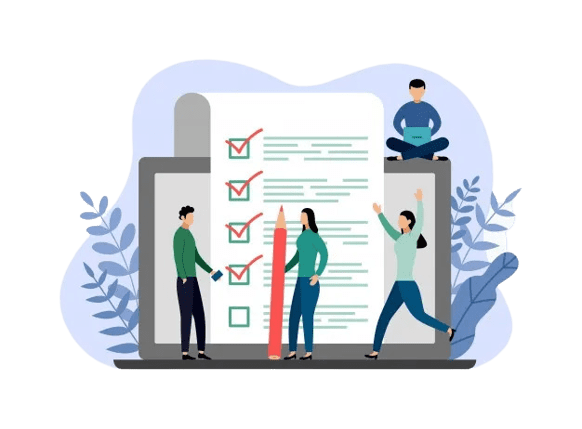Am I Gay?
3 Min Am I Gay Assessment

Create a nurturing environment where identities are celebrated, struggles are understood, and healing begins.
What is Am I Gay Assessment?
The “Am I Gay” assessment is a self-reflection exercise individuals may engage in to explore their sexual orientation. It involves questioning one’s feelings, attractions, and experiences to determine if they might be gay or have same-sex attractions. It’s important to remember that sexual orientation is a complex and personal aspect of identity, and such self-assessments are not definitive. Acceptance and understanding of one’s feelings, along with seeking support from others, can help individuals navigate their sexuality in a healthy and respectful manner.

Who can derive advantages from this assessment of Am I Gay?
The “Am I Gay” assessment can be advantageous for individuals at various stages of self-discovery regarding their sexual orientation. Those who may benefit include individuals questioning their attractions, individuals experiencing confusion or denial, and those seeking to understand and accept their same-sex attractions.
It can also be helpful for friends, family members, and allies who want to support and understand loved ones going through this process. Overall, the assessment promotes self-awareness, self-acceptance, and fosters a more inclusive and supportive environment for LGBTQ+ individuals.
Am I Gay Assessment Accuracy

The accuracy of the “Am I Gay” assessment can vary depending on individual circumstances and the depth of self-exploration. It’s essential to recognize that self-assessments are not diagnostic tools and cannot definitively determine one’s sexual orientation.
Sexuality is a complex and fluid aspect of identity that may evolve over time. Seeking guidance from a trained professional, such as a counselor or therapist, can provide a more accurate understanding and support in exploring and accepting one’s sexual orientation.
Types of Gay Assessment
Self-report questionnaires
Kinsey Scale Test
Klein Sexual Orientation Grid
The Shively-DeCecco Scale
Close Relationships Scale
Sexual Identity Scale
Handling Gay Issues
Handling gay issues requires sensitivity, respect, and an inclusive approach. Here are some key points to consider:
- Education and Awareness: Promote education about sexual orientation, gender identity, and LGBTQ+ issues to foster understanding and empathy.
- Non-Discrimination: Advocate for equal rights and protections for LGBTQ+ individuals to create a safe and inclusive environment.
- Supportive Spaces: Establish safe spaces where LGBTQ+ individuals can freely express themselves without fear of judgment or discrimination.
- Open Dialogue: Encourage open discussions about gay issues to break down stereotypes and reduce prejudice.
- Anti-Bullying Measures: Implement anti-bullying policies to protect LGBTQ+ individuals from harassment and discrimination.
- Access to Resources: Provide access to support networks, counseling, and resources for LGBTQ+ individuals and their allies.
- Training for Professionals: Offer training to healthcare providers, educators, and other professionals to ensure they understand the specific needs and concerns of LGBTQ+ individuals.
- LGBTQ+ Representation: Promote positive representation of LGBTQ+ individuals in media and society to combat stigmatization.
- Allyship: Encourage allies to support and stand up for LGBTQ+ rights and issues.
- Intersectionality: Recognize and address the unique challenges faced by LGBTQ+ individuals who belong to marginalized groups (e.g., LGBTQ+ people of color or with disabilities).
By fostering understanding, empathy, and inclusivity, we can create a more accepting and supportive society for everyone, regardless of their sexual orientation or gender identity.

